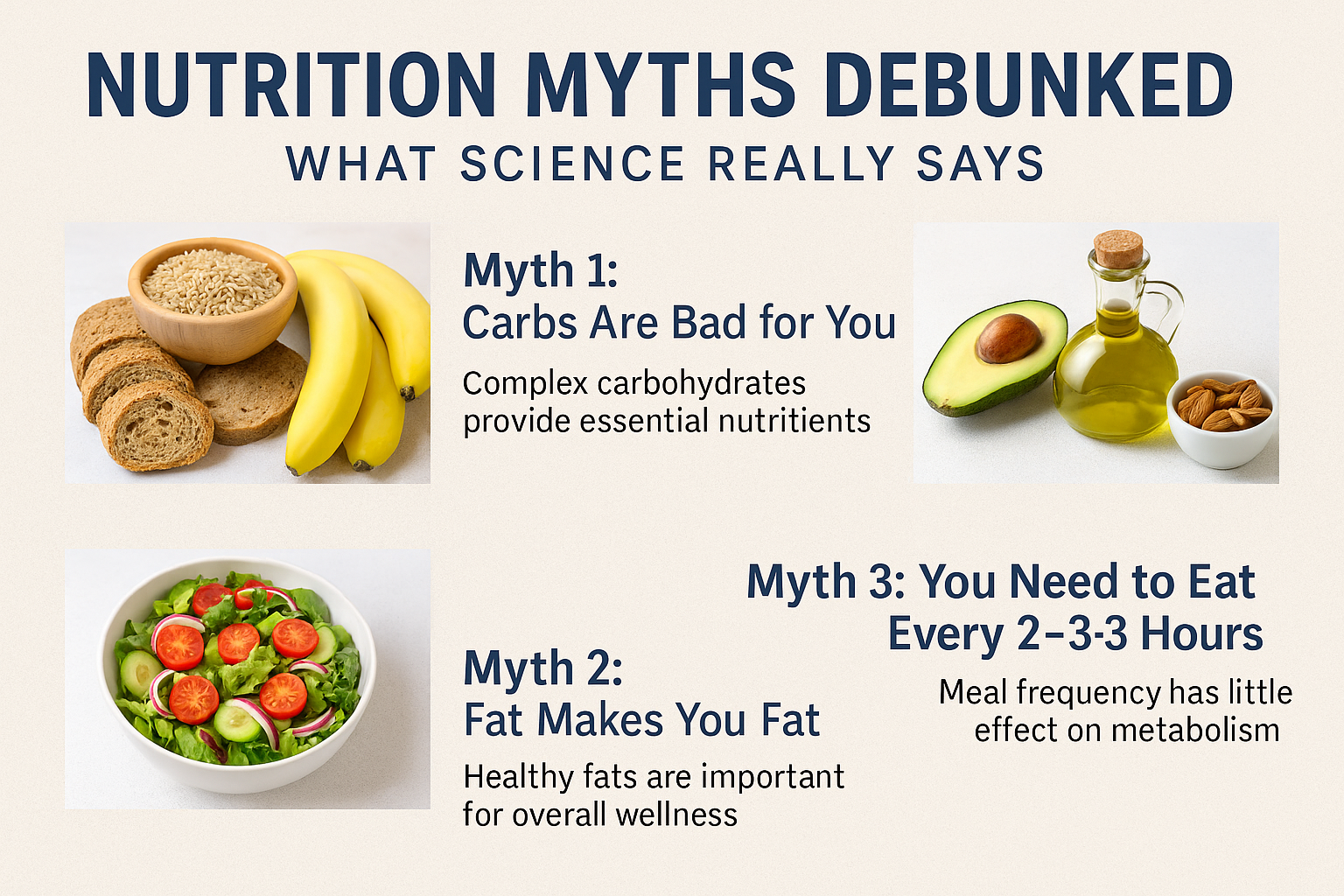Nutrition Myths Debunked: What Science Really Says
Confused by the constant flood of nutrition advice? You're not alone. The internet is full of diet fads and misinformation. In this guide, we debunk some of the most common nutrition myths and clarify what peer-reviewed science actually says about healthy eating.
Myth 1: Carbs Are Bad for You
Truth: Carbohydrates are not your enemy. In fact, they’re your body’s primary source of energy. The real issue lies in the type of carbs you consume.
Eat These:
- Whole grains (brown rice, oats, quinoa)
- Legumes (beans, lentils)
- Fruits and vegetables
Limit These:
- Refined sugars (candy, soda)
- Processed carbs (white bread, pastries)
Scientific Insight:
Research published in The Lancet shows that diets high in whole grains are linked to lower risk of heart disease, diabetes, and obesity.
Myth 2: Eating Fat Makes You Fat
Truth: Not all fats are created equal. Healthy fats are essential for hormone regulation, brain health, and the absorption of fat-soluble vitamins (A, D, E, K).
Healthy Fat Sources:
- Avocados
- Olive oil
- Nuts and seeds
- Fatty fish like salmon
Scientific Insight:
Studies on the Mediterranean diet—rich in monounsaturated and polyunsaturated fats—reveal reduced inflammation and lower risks of cardiovascular disease.
Myth 3: You Need to Eat Every 2–3 Hours to Boost Metabolism
Truth: Meal timing doesn’t significantly affect metabolism for most people.
Better Strategy:
- Focus on balanced meals with protein, fiber, and healthy fats
- Practice mindful eating
- Eat when you're hungry, not by the clock
Scientific Insight:
Research published in The American Journal of Clinical Nutrition suggests that meal frequency has minimal impact on metabolic rate. Total caloric intake and quality matter more.
Bonus Myth: Detox Diets Cleanse Your Body
Truth: Your liver and kidneys already do an excellent job of detoxification.
What to Do Instead:
- Stay hydrated
- Eat fiber-rich foods
- Reduce ultra-processed food intake
Scientific Insight:
According to the National Institutes of Health (NIH), there's no credible evidence that detox products enhance your body’s natural detox systems.
The Bottom Line
Instead of chasing trends, build your diet around evidence-based principles:
- Prioritize whole, minimally processed foods
- Include a mix of complex carbs, healthy fats, and lean protein
- Eat a rainbow of fruits and vegetables
- Avoid restrictive fads and focus on long-term balance
Every body is different. For personalized nutrition advice, consult a registered dietitian or licensed healthcare provider.
